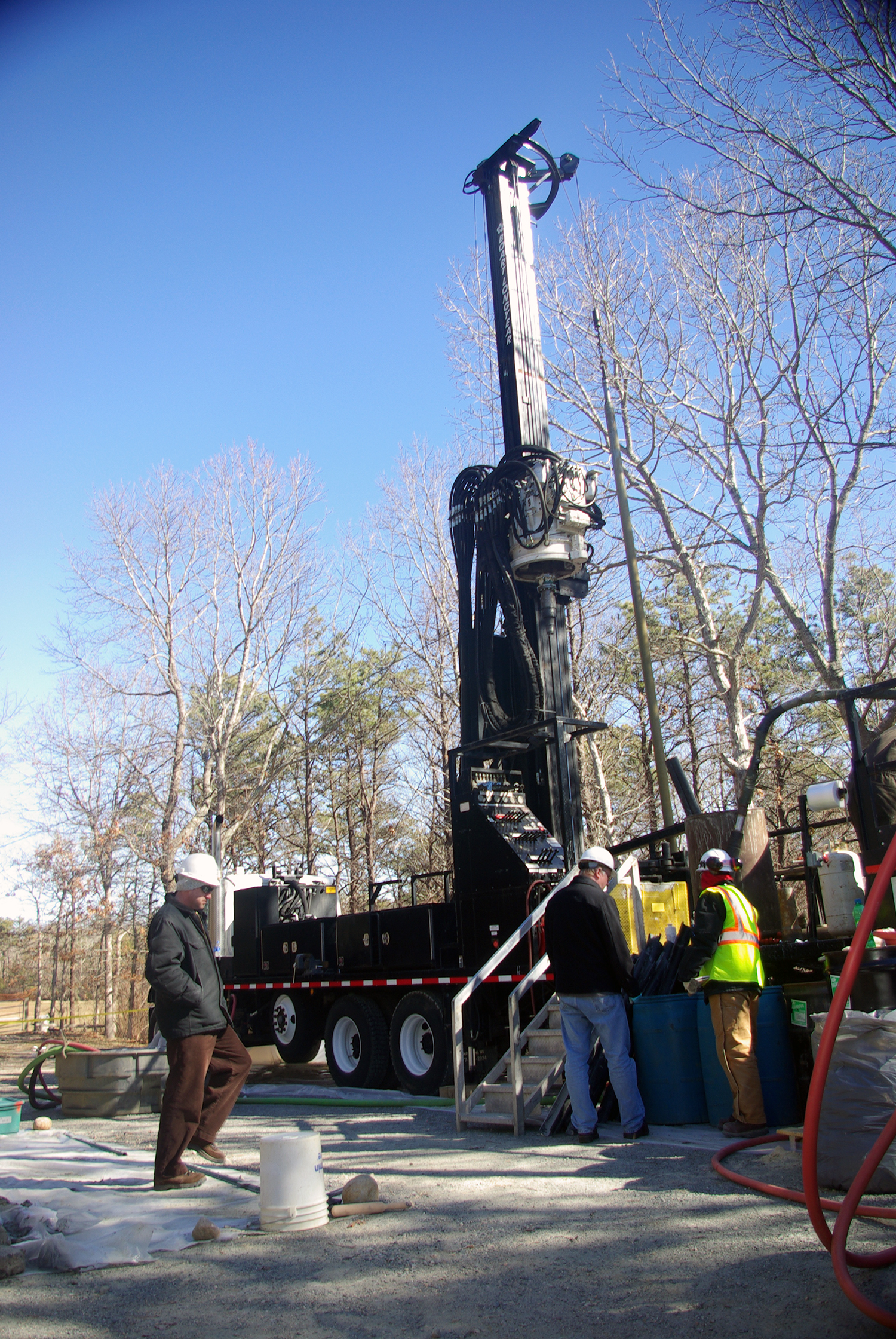The Air Force Civil Engineer Center (AFCEC), located at Joint Base San Antonio-Lackland, Texas, is a 1,900-person primary subordinate unit of the Air Force Installation and Mission Support Center, Air Force Materiel Command. The center is responsible for providing responsive, flexible, full-spectrum installation engineering services.
AFCEC missions include facility investment planning, design and construction, operations support, real property management, energy support, environmental compliance and restoration, audit assertions, acquisition and program management. The unit conducts its operations at more than 75 locations worldwide. At Joint Base Cape Cod (JBCC), AFCEC is managing the soil and groundwater contamination sites under the Installation Restoration Program and the Military Munitions Response Program in accordance with the Comprehensive Environmental Response, Compensation, and Liability Act (also known also as “Superfund”), as required by the Defense Environmental Restoration Program.
Business Challenge
JBCC is a 22,000-acre military base located on Western Cape Cod in Barnstable County, MA, approximately 60 miles south of Boston. The base has been used for military training activities since 1911 and is located over a sole-source aquifer that provides drinking water to the residents of the Upper Cape. As a result of contamination from chemical and fuel spills, fire training activities, landfills, and drainage structures, the base was added to the National Priorities List (NPL) in 1989 as a Superfund site. There are over 100 source areas and 18 groundwater plumes, nine of which are undergoing extraction and treatment with a combined system flow rate of approximately 11 million gallons per day.
For nearly two decades, teams of engineers and other remediation experts at JBCC have constructed, operated and monitored groundwater treatment systems which are located on and off base in the surrounding communities. Brad Johnson, project engineer with AFCEC contractor Jacobs, explained that the process of continuously remediating billions of gallons of contaminated water requires careful and continuous monitoring. The measurements include a wide range of metrics such as flow rates, tank levels, and system pressures, with updates coming as frequently as once per second.
“We have numerous groundwater extraction and reinjection wells that are thousands of feet – sometimes miles – away from the treatments plants,” he said. “The systems were originally built to deploy connections primarily using copper twisted-pair. Unfortunately, that meant AFCEC was paying $2,000 per month for landline communications, and certain circuits had hardware problems that created frequent service interruptions. We needed a way to ensure the systems operate as required and specified.”
Solution

Aiming to lower its costs and increase the reliability of its connections across the sites, AFCEC partnered with Verizon Wireless and accepted their recommendations. The AFCEC team began a switch to wireless connectivity for its equipment sites across the military base. After a careful evaluation, the team conducted a pilot deployment of the Digi WR21 cellular router.
This full-featured router can provide primary and backup WWAN connectivity over 3G/4G/LTE with RS232/422/485 serial support and dual Ethernet. Flexible power and connectivity options, along with extended temperature ranges make the Digi WR21 a versatile product for both commercial and industrial environments. Digi Remote Manager®, a cloud-based network management solution, provides easy setup, configuration, firmware updates and monitoring of large installations of remote Digi cellular routers.
Two units were deployed for initial evaluation – one at an extraction well and another at a treatment plant – while Verizon Wireless provided the wireless connectivity.
“We had to work diligently during the deployment because of signal-strength and antenna issues,” Johnson said. “Ultimately, it was a configuration issue – the devices were initially configured to openly communicate on any cellular band. But with the proper antennas and antenna locations, and a lock to the 700 MHz band, we were able to get consistent LTE signals at both test locations.”
Modern control systems such as the AFCEC/JBCC systems make use of the Modbus standard, an industrial protocol originally designed for copper wireline links. While cellular network availability now exceeds wireline, the increased latency is often a problem for legacy control systems accustomed to millisecond poll-response times. However, the combination of low-latency Verizon LTE and the Digi WR21’s native Modbus serial/TCP support has enabled a high success rate for control system transition from wireline to wireless.
Results
"With just a flip of a switch, this change increased our communications reliability,” said Johnson. “The cost savings resulting from reduced monthly charges, and the anticipated labor savings from not having to address frequent landline problems, are considerable as well. We have used these two test units for about three years, and we plan to expand them to our other nine treatment systems. The eight landline connections that we plan on replacing cost AFCEC a total of about $1,300 per month. But the replacement wireless connections will only cost $355 per month with a combined monthly data allowance of 60 GB. So we should achieve a 100-percent payback for the hardware in less than six months. When we replace the other landlines, and when you consider that we have about 20 more years of remediation work ahead of us, the savings will be even greater.”
Johnson added, “I should also note that Verizon Wireless and Digi have bent over backward to help us with this transition to cellular. Both companies have worked diligently to help us succeed. We’re very pleased with our results and look forward to expanding this successful transition across our remediation sites.”